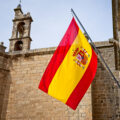Not following the Vatican’s lead – Migration and the Catholic Church Part 2
Not following the Vatican’s lead – Migration and the Catholic Church Part 2
Whilst Pope Francis and many of his senior clergy encourage tolerance towards migrants, populist parties across Europe have had little fear in directly challenging the Vatican. What will be the consequences of such polarisation among Catholics?
The first of this two-stage article on migration in the Catholic Church looked at how leading clergy members across Europe have been in accordance with Pope Francis’ liberal positions regarding migration. However, this political position that has prioritised compassion and understanding towards migration has often not only failed to translate to all members of Catholic congregations, but has been deeply opposed by many political parties who regard Catholicism as a key element of their political identity.
Although it has taken different forms in relation to the political scenarios in each nation, this tension can be observed across all major Catholic countries in Europe. Therefore, exploring how the migration debate relates to wider political patterns will be the purpose of this second article.
The populist threat
A 2017 article published by the National Catholic Reporter clearly demonstrated how the rise of populism was a major threat to the influence and unity of the Catholic Church and its followers.
The NCR observed that right-wing populists and nationalists in countries such as the Netherlands, France, and Germany, offered a clear and emotive message regarding the ‘mass influx of refugees’ that encouraged hostility to migration. This populist, and often successful, message stood in clear divergence from that of the Catholic Church.[1]
Given that this form of populism has often also sought to incorporate religious ideals and symbols into its platform, it is evident that the divergence between the populists and the Vatican on the question of migration is a major challenge to the authority of the Vatican.
The doors to Europe – Italy and Spain
As mentioned in part one, the process of migration has had a particular impact on Italy and Spain due to their geographical positions as the first nations that many migrants from Africa arrive at. Whilst clergy in both countries directly provided aid to migrants and called for tolerance towards them, populist parties have opposed this form of migration as a central issue in their political campaigning.[2]
In Italy, the leader of the far-right Lega party, Matteo Salvini, has often tried to utilise Catholic symbols as part of his political appeal, drawing direct criticism from members of the clergy. One particular example has been his habit of kissing a rosary at political events and in parliament, including at a political event from leaders of the European far right. Bishop Mario Grech, from Malta, said that it “hurt him” to see Salvini use this Catholic symbol and use Catholicism to justify their ideologies.[3]
Meanwhile, in Spain, the far-right VOX party has also aimed to utilise Catholic symbols as a part of their political ideology. [4] However, they have also regularly criticised migration. For example, they referred to the arrival of migrants in the Spanish enclave of Ceuta as an ‘invasion’ and targeted underaged migrants during the 2021 election campaign in Madrid.[5] This second example drew direct criticism from bishops in Madrid, who warned political parties against using ‘dangerous stereotypes’ of migrants.[6]
In response to the Vatican’s liberal position regarding migration, VOX have directly challenged Pope Francis by saying that he can take in as many migrants as he personally wants, but that the pope ought to “respect the sovereignty of each nation.”[7]
Anti-migration governments in the East
In Italy and Spain, far-right parties have pursued positions that are in direct opposition to the Vatican. However, in Eastern Europe, not only individual parties, but governments themselves have positioned themselves in direct opposition to the leadership of the Vatican on the issue of migration.
In both Poland and Hungary, the leading populist parties which currently control the nations have aligned themselves with the Catholic Church on a number of cultural and social issues. Most notably, these have included the closeness of the Church and the governing Law and Justice Party in Poland on restricting access to abortion, and also discourses that have criticised LGBTQ+ activists in both Hungary and Poland.[8] [9]
However, whilst conservative positions on such social issues have been common among the Catholic Church across Europe, the difference in Eastern Europe has been the reluctance of the clergy to actively adopt the position held by Pope Francis regarding migration. A 2018 article described how the Polish Church was ‘torn between supporting the government’s anti-migrant stance and adopting Pope Francis’ commitment to foreigners’. The issue, as explained by Agnieska Kunicka of the NGO Refugee.PL, was that, “[a]t the high level, the level of the cardinal, the church adopts the position of Pope Francis with regard to refugees, but in practice, it’s hard to meet people at the local level.” [10]
Furthermore, in Hungary, President Viktor Orbán has often used Christian values as a way of justifying his hardline anti-migrant position. In doing this, he has received support from senior Catholic clergy. For example, László Kiss-Rigó, the bishop of Szeged, has said that “the more migrants that come, the more Christian values will be watered down.” [11]
Therefore, quite evidently, the Catholic Church in Eastern Europe has been more reluctant to actively adopt Pope Francis’ views, only further underlining how the Vatican’s authority has been undermined by the rise of anti-immigration populism.
A long-term debate
As migration from Africa and the Middle East is likely to be a phenomenon that continues to grow in the coming decades, partly inspired by issues arising from climate change, the division that it has caused among Catholics seems unlikely to disappear any time soon. [12]
The key question will be whether or not a younger generation of Catholics adopts the message that Francis and many senior clergy have laid out, or whether they more closely identify with the anti-immigration stance of populist parties. This issue may form a key part in whether or not the Vatican is able to continue to hold its position as the greatest and most influential moral authority among Catholics on the continent.
Interested in similar topics? Go to our Dashboard and get free updates.
Sources
[1] Europe’s populist parties pose a challenge for the church
[2] Compassion not confrontation: Migration and the Catholic Church
[3] Audio: “Seeing Salvini holding rosary beads, hurt me” – Bishop Grech
[4] https://europeanacademyofreligionandsociety.com/news/defenders-of-the-faith/
[5] Las reacciones de Santiago Abascal y Vox a la llegada de migrantes a Ceuta
[6] El arzobispo de Madrid alerta de los “estereotipos peligrosos” contra los migrantes tras el cartel de VOX
[7] Vox respeta que el Papa acoja “a los miles de inmigrantes que quiera” pero recuerda que los estados son soberanos
[8] The pastor versus the populist: Hungary’s new faith faultline
[9] Polish women reject the Catholic Church’s hold on their country
[10] The Polish Catholic Church is divided over migrants—how will that impact next week’s elections?
[11] Orbán deploys Christianity with a twist to tighten grip in Hungary
[12] Pope Francis brings spotlight to climate migration: ‘Many are being devoured in conditions that make it impossible to survive’






